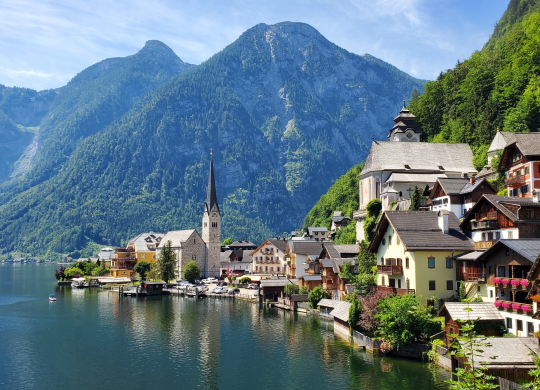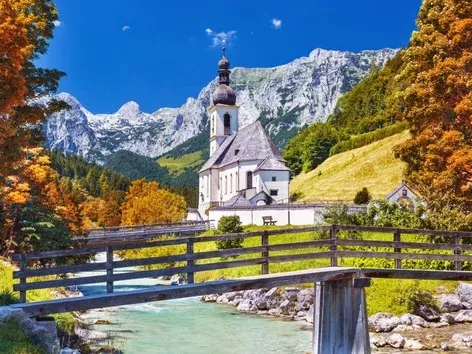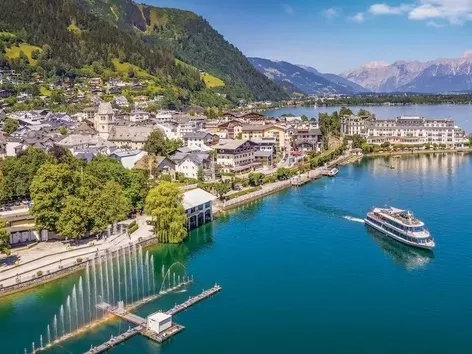Moving to Austria in 2025: how to legally live, work and establish yourself in the country

Moving to Austria in 2025 requires a clear understanding of the rules. Learn about current visa requirements, Red-White-Red Card, EU Blue Card, health insurance and residence for foreigners
Austria remains one of the most attractive countries in Europe for immigration due to its stable economy, high wages, strong social system and clear, albeit strict, migration rules. In 2025, the country actively attracts qualified foreigners, including citizens of Venezuela, Latvia and Serbia, but expects a high level of training and integration from them.
This guide will help you understand: who can move to Austria; what types of permits exist; what the application process looks like; what to pay attention to before and after moving.
Health insurance is a mandatory condition for obtaining a visa and residence permit in Austria. Without a valid insurance policy, documents for a residence permit may not be accepted. Apply for health insurance online in a few minutes and submit documents without the risk of rejection.
General information about Austria
- Population: over 9.1 million people
- Capital: Vienna
- Language: German (Hochdeutsch – official)
- Currency: Euro (€)
- Standard of living: one of the highest in the EU
Austria combines a high quality of life with a conservative approach to immigration: diplomas, official documents, rules and strict adherence to procedures are valued here.
Who can move to Austria?
EU / EEA / Swiss citizens
Representatives of these countries can:
- Live and work freely in Austria;
- Not receive a visa or work permit;
- After 3 months of stay, register your residence (Anmeldebescheinigung).
Important: even EU citizens need to prove financial self-sufficiency and health insurance.
Third-country nationals (non-EU)
To stay for more than 6 months or work, you need to obtain a residence permit, which in most cases combines the right to reside and work.
Main ways of immigration to Austria in 2025
Red-White-Red Card (RWR Card)
The main tool for labor immigration.
- Who is suitable: highly qualified specialists; specialists in scarce professions; key workers; graduates of Austrian universities; self-employed and startup founders.
- How the system works: assessment according to a points system (education, experience, age, language); mandatory job offer from an Austrian employer; permit issued for 24 months.
- Advantages: legal residence and work; right to family reunification; possibility of obtaining an RWR Card Plus after 21 months.
EU Blue Card
Suitable for highly qualified professionals with higher education.
- Basic requirements in 2025: higher education (minimum 3 years); employment contract from 6 months; minimum annual income of approximately €51,500 (before tax).
- Advantages: higher mobility within the EU; faster path to long-term status; easier switching between employers after a certain time.
Job Seeker Visa
Visa for very highly qualified professionals who do not yet have a contract. Allows you to stay in Austria for up to 6 months; during this time you need to find a job and apply for an RWR Card; if you do not find a job, you must leave the country.
Family reunification
Family members (spouses, minor children) can join the main applicant.
Conditions: sufficient income; housing of appropriate size; basic knowledge of German (A1) – for adult family members.
Basic documents for applying for a residence permit in Austria
- International passport;
- Standard photo;
- Employment contract or proof of qualifications;
- Diplomas and certificates;
- Proof of financial capacity;
- Health insurance;
- Certificate of no criminal record;
- Proof of residence in Austria.
All documents usually require: an official translation into German and an apostille or legalization (depending on the country).
What to do after moving to Austria?
1. Address registration – within the first few days after settling in, you need to register your address (Meldezettel).
2. Health insurance – employed people are automatically connected to the state system (ÖGK), private insurance is required before starting work.
3. Tax number and social security – after starting work you receive: social security number, access to health services, pension savings.
Language and integration in Austria
- The official language is standard German;
Language skills significantly affect the possibility of extending the permit, obtaining permanent residence, citizenship in the future.
For some permits, a certificate is not required, but in practice, integration without German is very difficult.
Long-term prospects
After several years of legal residence, you can:
- Obtain Daueraufenthalt – EU (permanent status);
- Apply for Austrian citizenship later (under strict conditions).
Moving to Austria in 2025 is a realistic but demanding process. The country is interested in skilled migrants, but expects: clear compliance with the rules, proven income and diplomas, willingness to integrate.
The right type of permit is the key to success.
Moving to Austria and not yet connected to public healthcare?
Private health insurance will protect you from the first day of your stay in the country.
- Suitable for visa and GNP applications.
- Covers doctors, hospitals and emergencies.
- Required before starting official work.
Take care of your health and legal status - take out an insurance policy before moving.
Reminder! Austria is introducing a new work permit for cross-border workers from December 2025. We have already told you who can apply, how the scheme works and what are the rules for families of workers.
Photo – generated by Gemini
Products from Visit World for a comfortable trip:
Checklist for obtaining a visa and necessary documents in Austria;
Legal advice on immigration to Austria;
Travel insurance for foreigners in Austria
Health insurance for the whole world.
We monitor the accuracy and relevance of our information, so if you notice any errors or inconsistencies, please contact our hotline.
Frequantly
asked questions
Can you move to Austria without a job offer?
Can you move your family after moving?
How long does it take to obtain permanent status in Austria?
Recommended articles
3 min
Work
Employment in Austria in 2024: how easy is it to find a job and how much does it pay?
Due to the high standard of living and decent salaries, more and more labor migrants are choosing Austria for permanent residence. Find out more about the labor market, popular vacancies and average salaries in Austria in 2024
24 Jun. 2024
More details2 min
Expats
Cost of living in Austria: expenses for housing rent, food, entertainment and budget for the month
Austria is one of the happiest countries in the world, and its friendly people, well-developed transport infrastructure and high level of healthcare are attracting more and more expats here. However, most people know that living in Austria is expensive. How much? Find out what the prices of housing, food, entertainment and much more will be in Austria in 2025
18 Apr. 2025
More details2 min
Travels
Best places to visit in Austria in 2025: tourist attractions and top entertainment
Austria is rich in attractions. The country at the foot of the Alps is primarily associated with Vienna and its excellent ski infrastructure. Find out more about the top tourist attractions in Austria, the most interesting entertainment and music festivals in Austria
05 Aug. 2024
More details2 min
Popular
Working Holiday Visa to Austria 2025: How to Apply and What You Need to Know
Austria has opened applications for the Working Holiday Visa for 2025. Who can participate, how to apply, what documents are required, cost and benefits – find out everything about the Working Holiday Visa to Austria
16 Jul. 2025
More detailsAll materials and articles are owned by VisitWorld.Today and are protected by international intellectual property regulations. When using materials, approval from VisitWorld.Today is required.
